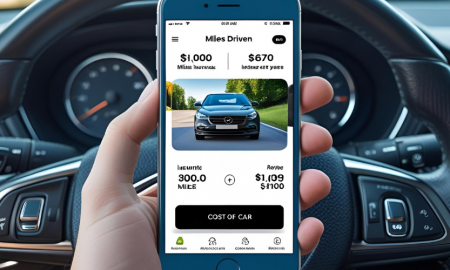
These Are The Things You Need to Clarify First With Your Car Insurance Provider Before Sealing The Deal

Choosing a car insurance policy is difficult enough, but things can get harder once people realize the many important things they weren’t told by their provider.
And when their first bill arrives, some people might still be confused about the specifics that go into the price of their premium’s pricing. Here are some of the things insurance providers often forget to clarify with their clients.
Car or Driver?

One may also end up with a more expensive premium depending on their record of traffic violations or accidents
Oftentimes a person’s car insurance will be attached to the vehicle they drive. In these cases, the benefits will kick in no matter who was the person driving the car when an accident happens. However, there are cases when specific uses of the vehicle will not be covered.
It’s best if one reads the fine print first before letting somebody else drive, just to be safe. There might also be an option that allows people to exclude certain individuals from using their vehicle.
Credit Score Impact
People living in certain states will find that their credit scores actually have an impact on the premium they’ll end up paying for their car insurance. According to studies done by the Federal Trade Commission, an insurance company may end up charging a person with a lower credit score higher rates since they deem them to be riskier.
However, those living in the states of California, Hawaii, and Massachusetts are lucky as these places don’t factor in one’s credit score when pricing policies.
Access to Insurance Reports

Drivers also have the right to receive notice if ever there are any negative decisions based on the data found on their reports
Insurance companies typically share information with databases like the Comprehensive Loss Underwriting Exchange (CLUE). These then keep a record of the various claims that drivers make over the years.
Each individual is entitled to a free copy of their record every year or so. Records typically stay on the database for around five to seven years. It’s worth noting that making requests to get one’s reports don’t have any negative impacts on their credit score.
The Age Factor

Older drivers would typically notice that their premium might rise as they age further
Now, this next one isn’t really a secret. Insurance companies do factor in their client’s age when calculating the price of their premium. Generally, it’s the drivers on the opposite ends of the age spectrum that end up paying the most.
According to sources, 18-year-old drivers tend to pay the most expensive premiums. However, this number steadily declines year after year until they turn 25. Then their premiums would more or less remain the same for the next 30 years or so. But it would return to its rising trajectory once a driver turns 55 years old reaching a high at the age of 75.
More inCar Insurance
-
`
Adults in Ohio Face Stricter Rules to Obtain Driver’s License
Ohio has passed a new law that will change the way adults under 21 get their driver’s licenses. Signed into law...
July 31, 2025 -
`
Gen Z Craves Career Guidance, But Their Parents Are Struggling Too
Gen Z is stepping into the future with curiosity and ambition—but they’re not doing it alone. A growing number of teens...
July 25, 2025 -
`
Do Car Insurance Companies Offer Pay-As-You-Go Plans?
Car insurance premiums often feel unfair to people who rarely drive. Yet, most traditional auto policies still charge a fixed monthly...
July 17, 2025 -
`
Why the Koenigsegg Sadair Spear Is the Ultimate Hypercar Beast
Koenigsegg has revealed a new beast—the Sadair’s Spear. Tuning its focus on raw performance and brutal speed, this hypercar marks the...
July 11, 2025 -
`
Which States Have the Safest—and Riskiest—Drivers in America?
Driving safety isn’t just about skill. It’s also about location. A recent nationwide report shines a spotlight on where drivers are...
July 4, 2025 -
`
How to Save on Tesla Car Insurance Without Compromising Coverage
Owning a Tesla often brings savings on fuel and a futuristic driving experience, but the conversation changes quickly when it comes...
June 26, 2025 -
`
10 Weird Cars That Turned Heads and Won Hearts
Some cars turn heads with speed, others with luxury—but a rare few grab your attention simply by being delightfully strange. From...
June 20, 2025 -
`
Next-Gen Jeep Cherokee Expected to Arrive by Late 2025
After a break of two years, Jeep is prepared to relaunch the Cherokee brand. The automaker confirmed the return with fresh...
June 12, 2025 -
`
9 Tips to Make Night Driving Safer and Less Frightening
Once the sun dips below the horizon, driving becomes more than just a commute—it becomes a challenge. Limited visibility, harsh glares,...
June 6, 2025















You must be logged in to post a comment Login